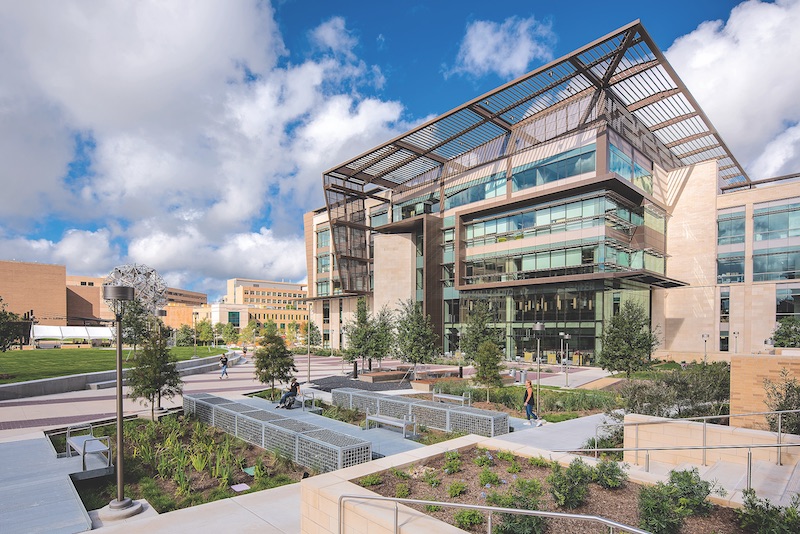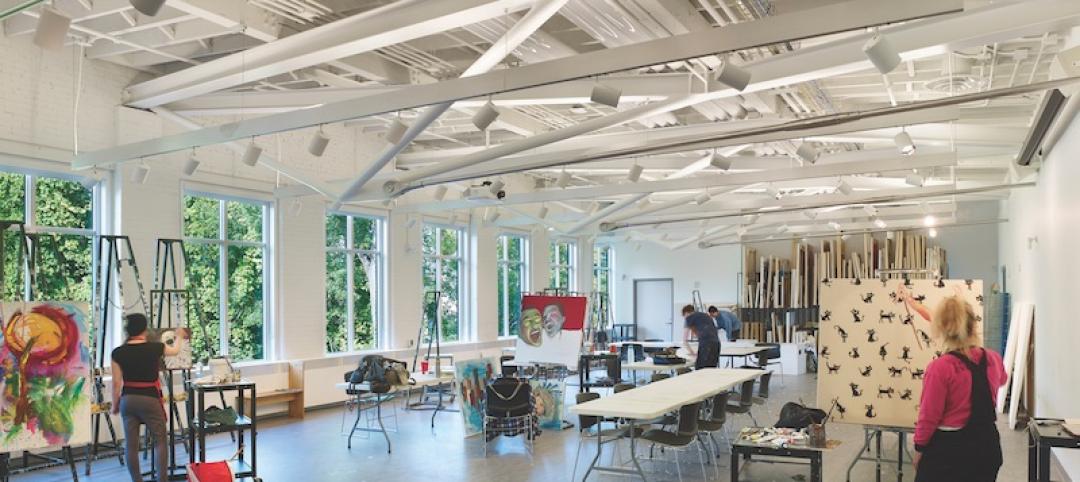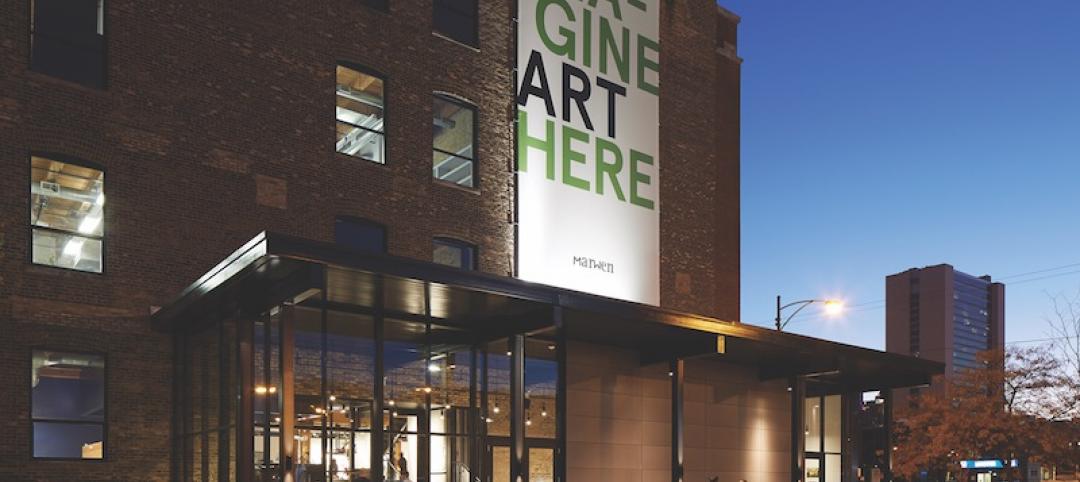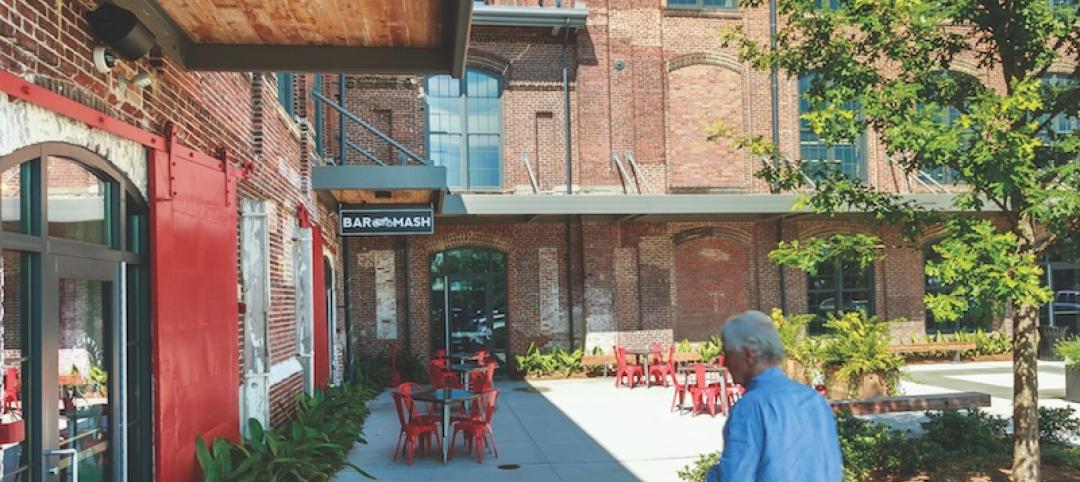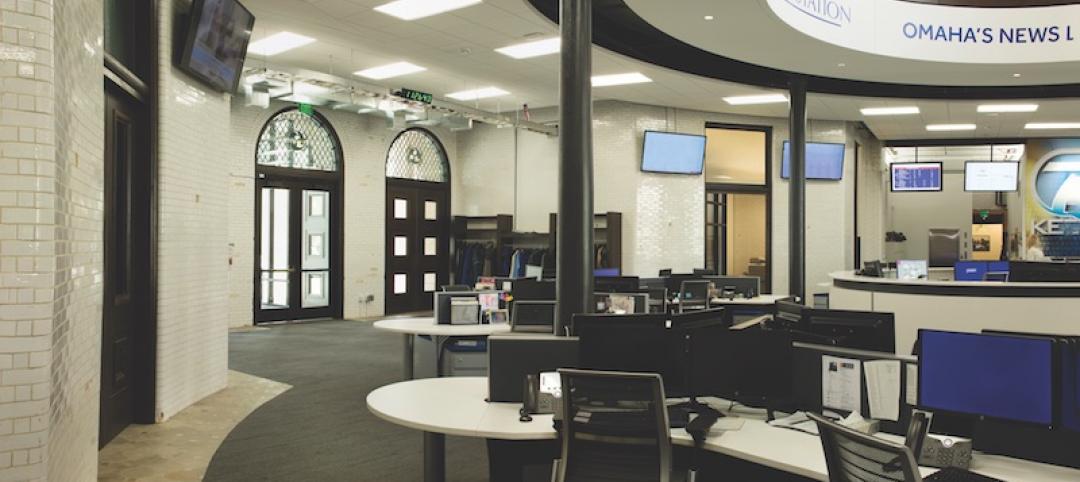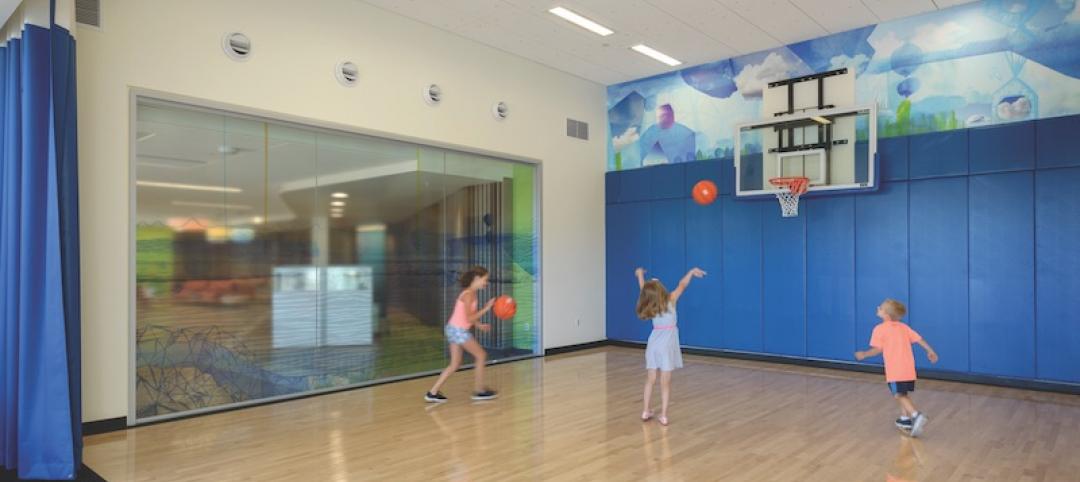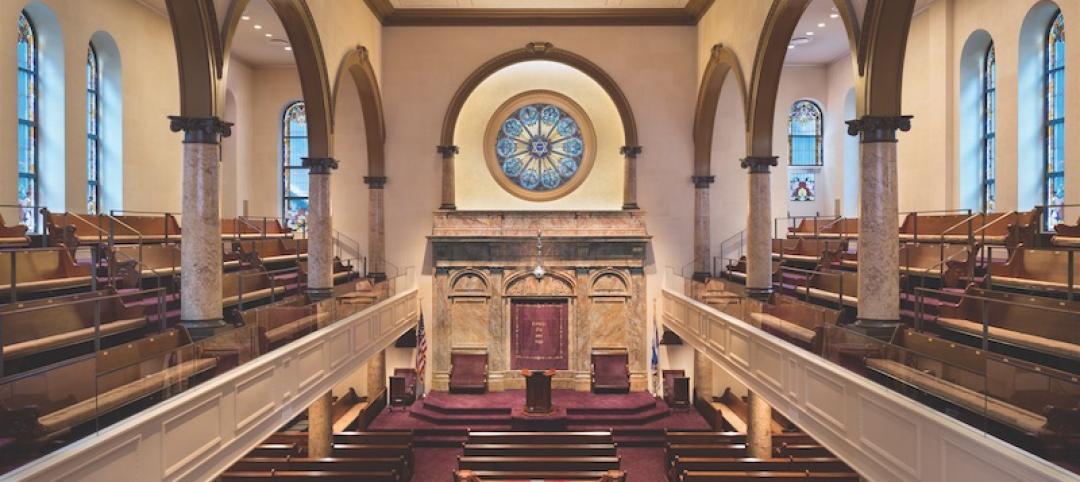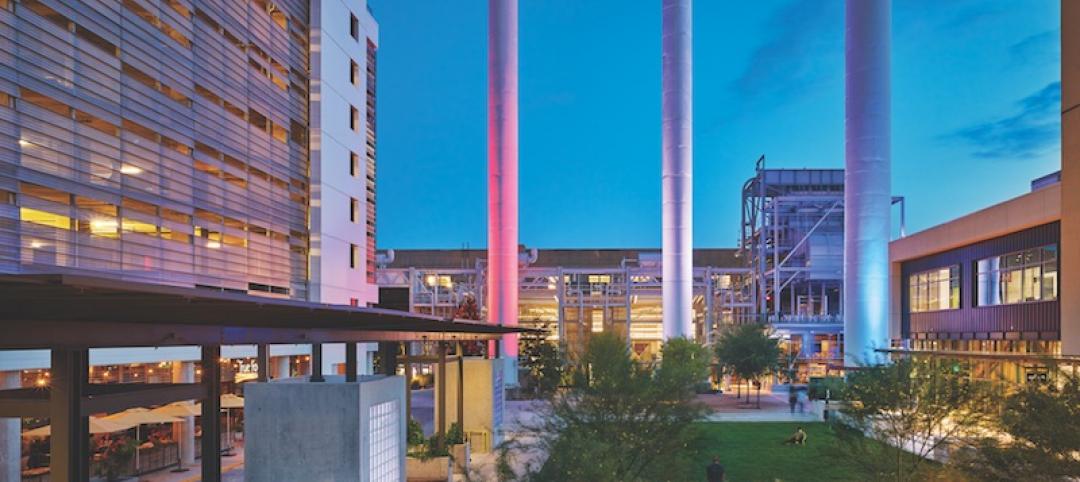In 2013, Texas A&M University College of Engineering launched its “25 by 25 initiative,” whose goal is to more than double its enrollment to 25,000 students by 2025 without incurring significant infrastructure costs. All this while simultaneously creating a 21st-century engineering education model focused on technology-enabled learning, hands-on projects, and collaborative and multidisciplinary learning spaces.
The first step was the renovation and expansion of the old Zachry building, a 1970s-era precast box. The revivified structure, now the largest academic building on campus, has become a gateway that has added two five-story additions totaling 225,000 sf. Its common labs have open floor plans organized by themes rather than by standalone departments.
To make the building look like new construction, the project team, led by architect TreanorHL, removed the entire load-bearing precast concrete façade. Permanent steel framing was installed prior to removal, which eliminated the need for about 90% of temporary shoring. The team also reused 80% of materials from the original structure.
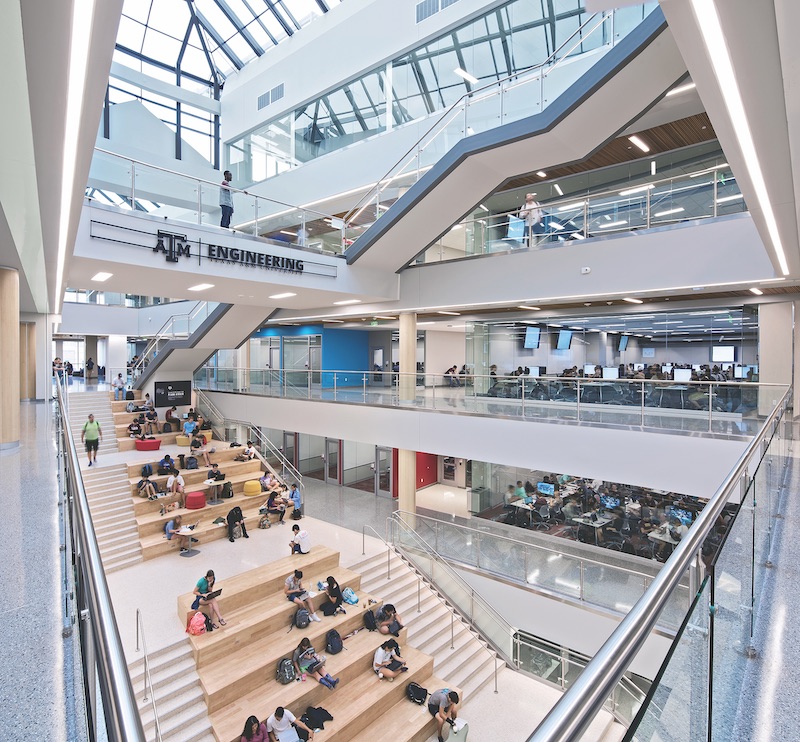 The atrium and staircase are activated by natural light, flexible seating, glass walls, and a skylight.
The atrium and staircase are activated by natural light, flexible seating, glass walls, and a skylight.
Visual transparency into the learning studios, labs, maker spaces, and outdoor green spaces activates the building’s interior. A new central atrium connects a learning staircase and a 165-foot-long, 3,500-sf split-level skylight that runs down the atrium’s spine.
To support new ways of learning and instruction, the design team collaborated with a national furniture manufacturer to develop custom group tables whose monitors can be raised and lowered on demand. Users can switch between tables and displays to selectively share and display inputs from any point in the room, from distance learning, and via interactive touchscreens (T1V) in each learning studio. These components and concepts were tested in an offsite prototype classroom prior to installation.
The Zachry Engineering Education Complex received the Gold Medal Engineering Excellence Award and the Eminent Conceptor Award from the American Council of Engineering.
GOLD AWARD WINNER
BUILDING TEAM TreanorHL (submitting firm, architect) Texas A&M University (owner/developer) JQ Infrastructure (SE, CE) Shah Smith & Associates (MEP) Coleman & Associates (landscape architect) Vaughn Construction (GC, CM) DETAILS 530,000 sf Total cost $171 million Construction time August 2016 to July 2018 Delivery method CM at risk
Related Stories
Reconstruction Awards | Nov 16, 2016
Reconstruction Awards: Marilyn I. Walker School of Fine and Performing Arts, Brock University
The five-story brick-and-beam structure is an adaptive reuse of the Canada Hair Cloth Building, where coat linings and parachute silks were once made.
Reconstruction Awards | Nov 16, 2016
Reconstruction Awards: Marwen
Marwen currently offers 100 studio courses to 850 underserved students from 295 schools and 53 zip codes.
Reconstruction Awards | Nov 16, 2016
Reconstruction Awards: The Cigar Factory
The Cigar Factory was originally a cotton mill but became the home of the American Cigar Company in 1912.
Reconstruction Awards | Nov 16, 2016
Reconstruction Awards: St. Patrick's Cathedral
The cathedral, dedicated in 1879, sorely needed work.
Reconstruction Awards | Nov 15, 2016
Reconstruction Awards: Lovejoy Wharf
After demolishing the rotten wood wharf, Suffolk Construction (GC) built a new 30,000-sf landscaped quay, now known as Lovejoy Wharf.
Reconstruction Awards | Nov 15, 2016
Reconstruction Awards: KETV-7 Burlington Station
The 1898 Greek Revival train terminal, which was listed on the National Register of Historic Places in 1974, had been abandoned for nearly four decades.
Reconstruction Awards | Nov 14, 2016
Reconstruction Awards: The Gallery at the Three Arts Club
On the exterior of the building, masonry and terra cotta were revitalized, and ugly fire escapes on the south façade were removed.
Reconstruction Awards | Nov 14, 2016
Big-box store rescaled to serve as a preventive-care clinic
The hospital was attracted to the big box’s footprint: one level with wide spans between structural columns, which would facilitate a floor plan with open, flexible workspaces and modules that could incorporate labs, X-ray, ultrasound, pharmacy, and rehab therapy functions.
Reconstruction Awards | Nov 14, 2016
Fire-charred synagogue rises to renewed glory
The blaze left the 110-year-old synagogue a charred shell, its structural integrity severely compromised.
Reconstruction Awards | Nov 11, 2016
Adaptive reuse juices up an abandoned power plant
The power plant was on the National Register of Historic Places and is a Recorded Texas Historic Landmark.


